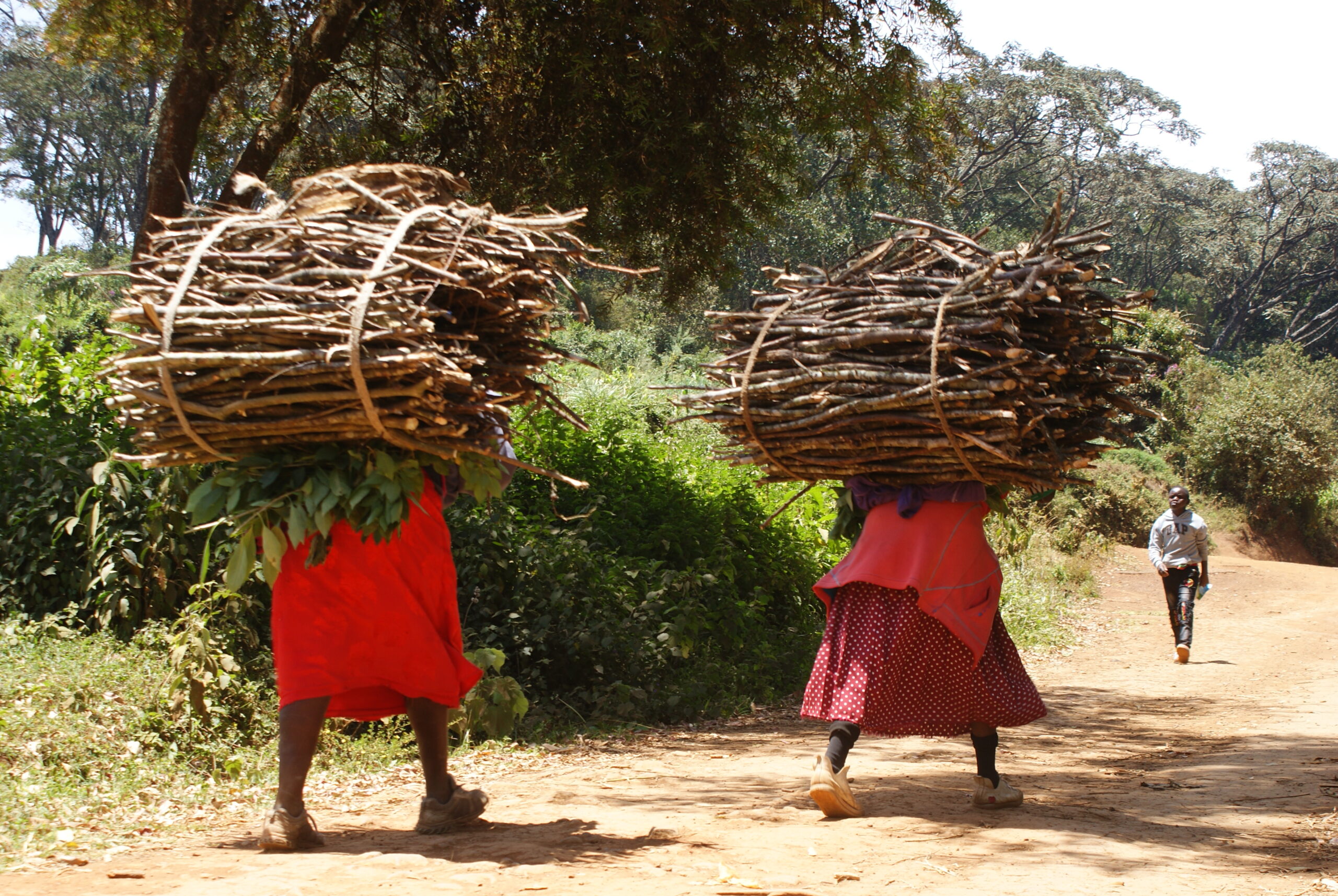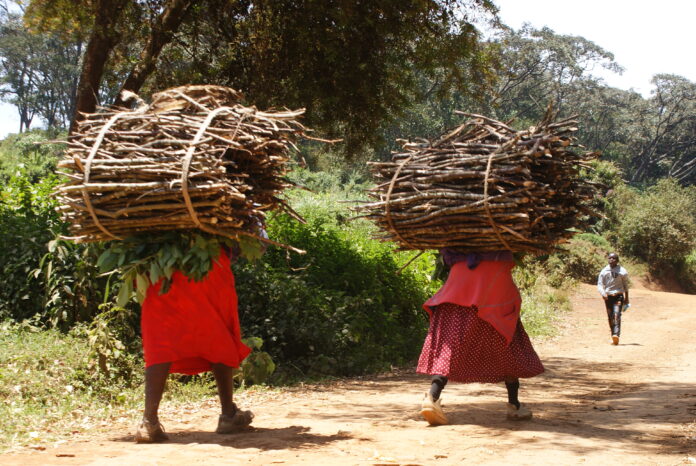By David Njagi
Meru County, Kenya: The honking of a delivery truck at around 2.00 p.m. announced the shift for Mwarini village tea farmers to load their day’s leaf pick for transportation to the market.
Mercy Kajuju scurried to the village’s buying center to drop in her harvest with two excited children in tow. Inside the buying center, she saluted other women from the village with a greeting that ringed of familiarity and fatigue.
The mother of two emptied her leaf harvest on a grading bench and continued to sort it for transportation to the nearby Imenti tea factory.
At this stage, a keen observer would expect the men of the village to be present to load the center’s collection into the 10-foot-high truck. There are none.
Instead, Kajuju joined other women outside the buying center waiting for their turn to load the day’s tea collection.
She paired up with a colleague and after a mutual agreement, it was decided between the two that she would be the one on the ground to lift the heavy bags to the one aboard the truck.
“Doing all this work is normal for me. I do not mind because harvesting and taking the tea to the buying center is what women here have been doing for generations,” said Kajuju, between breaks to catch her breath.

Jambero Mutwiri, a farmer from the village said his kin have been practicing tea farming since independent Kenya. In the Meru cultural way of life, the accepted norm was for women to work in the fields while the male folk managed family finances.
It still is so today, and not just in Meru, but in most tea-growing regions in Kenya as well, according to Ethical Tea Partnership, a global non-profit that advocates for the rights of workers in the sector.
Its analysis of responsibilities in tea-growing communities reported that women perform at least a dozen more tasks than men every day, in addition to working on the tea farm.
During the sunset hours of the day, tired women like Kajuju will be returning from the tea-buying centers, only for them to summon their reserved energy to make dinner for the family and also prepare children for the following day’s school attendance.
All this time, the men will be socializing with friends in fun treats like discussing politics, watching soccer, playing traditional bao, as well as drinking alcohol, the analysis said.
Mutwiri said men used to join their women in the tea farms in the 80s when leaf prices were high. But in the present day, it cannot be so because the rates have declined to a point where farmers make losses.
“As men we want to help in the tea farms. But it does not make sense for all of us to be working there when at the end of the year there is little money to show for it,” said Mutwiri.
The end of the year is payday, when tea farmers receive their checks. It is both a rewarding time for families and a test, according to Ephraim Murithi, another tea farmer and a rights activist from the Mt. Kenya region.
Murithi has worked with aggrieved women who upon their husbands receiving payment, they disappear from the family and the village, only for them to resurface when they have spent all the cash.
He has been working with leaders and other rights groups to educate tea farmers on the importance of gender equality in the tea sector, especially when it comes to finance management.
“I feel sad when I talk about it. Women do all the work on the farm but when it comes to bonus time, they are harassed and intimidated by their husbands when they try to make decisions on how the money should be spent,” said Murithi.
The upsets that women face in the tea sector do not end at the family level. Studies done by rights groups like Solidaridad indicate that labour rights affect women on many fronts.
For those working in white colour jobs, the most troubling are exploitation and sexual violence, due to being confined to the rank and file.
Poor representation at senior-level positions in the tea sector limits women’s opportunities for growth, said Anne Njuguna, the senior project officer at the non-profit.
While media coverage of the tea sector could bring reforms in terms of women’s rights, Njuguna said advocacy campaigns must be supported by policies that promote gender equality.
For instance, the National Tea Policy whose process of its establishment begun a decade ago, is yet to be actualized. While getting the draft document is a difficult call, it is not clear on gender representation in the sector.
“The tea sector needs more women representation for it to shine in the public light. The media is doing some good work in highlighting these issues but there is a need for more public awareness on gender equality rights,” said Njuguna.
The exploitation of women in the tea sector can be traced back to 1903 when the crop was first introduced into Kenya by English settlers. Growing the crop was restricted to large-scale settlers and multinationals.
Although the restriction was lifted in 1963, the culture of large-scale production which pooled its labour from resident communities continued to the present day. This labour force was mostly supplied by women. It is still supplied by this group.

For a country that is the world’s leading exporter of processed black tea, where the sector is one of the major contributors to the national income, there have been a lot of expectations for reforms.
But Kajuju has not seen these reforms, yet she was born on a tea farm, grew up there, and even started her family in this community.
She has never heard of the National Tea Policy. But if the legislation can help reduce some of her workloads at the family tea farm, she could spare some time to learn more about the document.
“The harder I work the higher the cost of living is becoming and the lower the returns after selling my tea. I do not understand what is happening,” said Kajuju.














